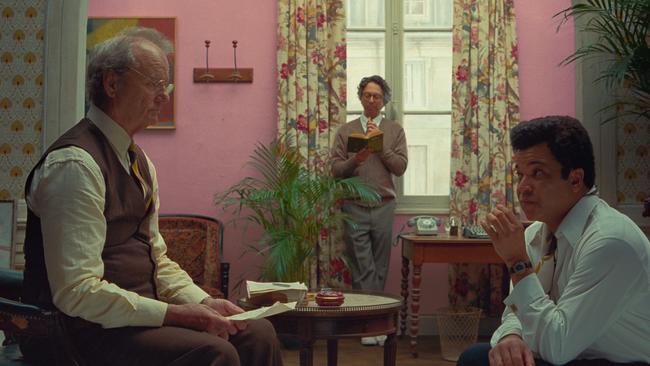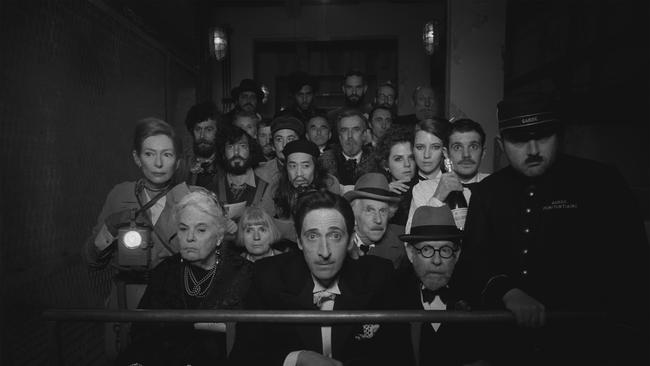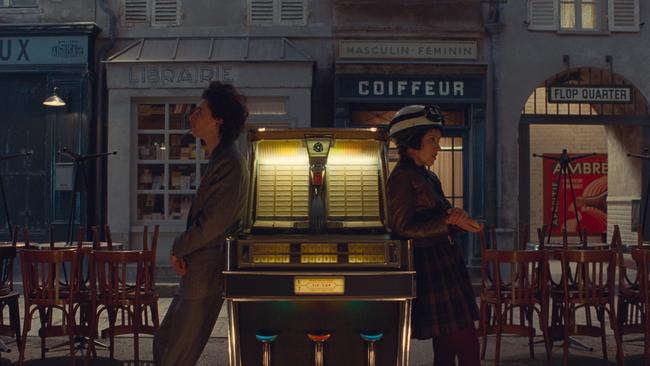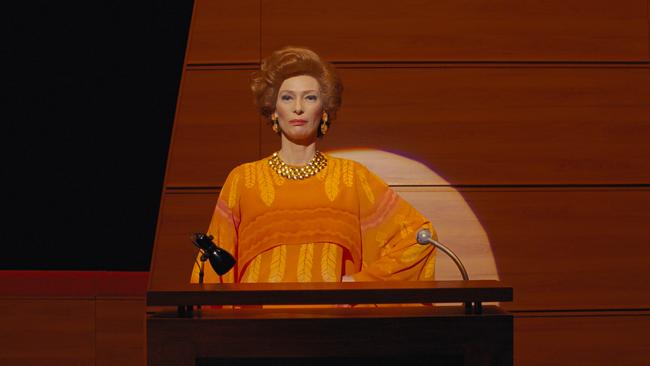The French Dispatch review: Wes Anderson’s loveable kooks in ode to storytelling
There’s an overriding theme to Wes Anderson’s movies that goes beyond his meticulous style. It’s his love for oddballs.
Movies
Don't miss out on the headlines from Movies. Followed categories will be added to My News.
Filmmaker Wes Anderson doesn’t make movies for everyone.
His idiosyncratic style – think meticulous, diorama-esque production design, a clipped yet languid rhythm to his dialogue – across films such as The Grand Budapest Hotel, Rushmore and The Royal Tenenbaums, means he has just as many detractors as ardent fans.
His critics find his brand of whimsy twee while his devotees consider him a singular creative force whose visual artistry is matched only by Anderson’s love of nostalgia and precision.
And that nostalgia is steeped in The French Dispatch, a feature inspired by his affection for writing, specifically in The New Yorker magazine.
As an ode to the writers and journalists who have graced the venerable publication over the years, The French Dispatch marries that with Anderson’s Francophilia to craft a film about loveable oddballs.

Vivid and delightful, The French Dispatch is made up of a framing story and an anthology of three short stories. It’s a curious babushka doll of storytelling in which there can be a stage play within a story within a feature.
Set in a fictional French town called Ennui-sur-Blasé, the framing story is the goings-on of a literary journal called The French Dispatch, edited by Arthur Howitzer (Bill Murray), who founded the magazine while travelling as a young man.
The three short stories are those being published in the current edition.
The first is “The Concrete Masterpiece”, a story about homicidal prisoner Rosenthaler (Benicio Del Toro) who creates enchanting artworks of his muse and lover, a prison guard named Simone (Lea Seydoux), and the art dealer (Adrien Brody) with a pocket full of candied chestnuts who turns him into a sensation.

The second is “Revisions to a Manifesto”, set during the 1960s student protests, centred on the writer (Frances McDormand), who becomes involved with one of the revolutionaries (Timothee Chalamet). It’s a tale about youthful idealism and loneliness.
Finally, there’s “The Private Dining Room of the Police Commissioner”, a recollection by a writer (Jeffrey Wright) of the night he was invited to sample the dishes of the legendary police officer and chef Lt Nescaffier (Stephen Park) when the police commissioner’s (Mathieu Almaric) son is kidnapped by a criminal (Edward Norton).
Others in the enormous ensemble cast include Owen Wilson, Tilda Swinton, Elisabeth Moss, Liev Schreiber, Saoirse Ronan, Cecile de France, Christoph Waltz and Bob Balaban, plus the voiceover talents of Anjelica Houston.

Each vignette has its own charm and while it appears, at first, there’s no thread between them, they are – like most of Anderson’s work – about outsiders, those who march to the beat of their own drum.
Take, for example, the third story about the chef, Lt Nescaffier. Both he and the writer/narrator of that tale, Roebuck Wright (inspired by the likes of James Baldwin and A.J. Liebling) are foreigners in Ennui-sur-Blasé, and they connect over that sense of not wanting to be a disappointment.
Anderson has always embraced his outsider characters – from the persnickety Max in Rushmore to the surly Chief in Isle of Dogs – he has great love for them, and that devotion is evident in all the kooks in The French Dispatch. Yes, even the murderous Rosenthaler.
That’s what makes Anderson movies so lovely to spend time in. Anderson loves his characters as much as Arthur Howitzer does his writers.

Of course, it’s the specificity of his style, those creative tableaus such as the dazzling faux-freeze-frames in The French Dispatch or his many nods to classic French cinema such as the hat-tip to Jacques Tati’s Mon Oncle in the opening sequence. And as it turns out, Anderson can do it just as well in black-and-white as he can in colour.
But really, it’s that Anderson tenderly crafts imaginative confections with captivating eccentrics whose companionship is pure pleasure.
Rating: 4/5
The French Dispatch is in cinemas on Thursday, December 9
Share your movies and TV obsessions | @wenleima
Originally published as The French Dispatch review: Wes Anderson’s loveable kooks in ode to storytelling





